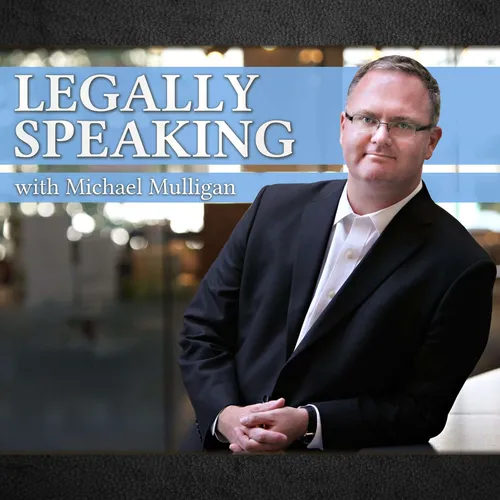Legal requirements for the police to arrest or detain someone, and AG consent required to prosecute an offence on an international flight
- Author
- Michael Mulligan
- Published
- Thu 16 Jul 2020
- Episode Link
- None
This week on Legally Speaking with Michael Mulligan:
When are the police permitted to arrest or detain someone?
In the context of discussions concerning unbiased policing and identification checks, various common circumstances that do permit a police officer to arrest or detain someone are discussed:
1) If they have reasonable grounds to believe they have committed a criminal offence.
2) If they have reasonable grounds to believe someone is about to commit an offence.
3) For “investigative detention”, short of an arrest, where a police officer has reasonable grounds to suspect an individual is connected with a particular crime.
4) If there is an outstanding warrant.
5) In order to issue a ticket: the leading case on this is from Victoria. It involved a man who rode his bike through a red light and then refused to identify himself so as to permit a police officer to write him a ticket. The case went all the way to the Supreme Court of Canada. The man rode his bike from Victoria to Ottawa for the hearing but was unsuccessful.
6) Pursuant to provincial mental health legislation, when someone is believed to be a danger to themselves or others.
7) Where someone is in a “state of intoxication” in a public place, pursuant to provincial liquor legislation.
8) At any time someone is driving a vehicle, in order to ensure sobriety, licence, insurance coverage, or any other requirement of the Motor Vehicle Act.
Where someone is not driving a vehicle, or subject to a lawful arrest or detention, there is no general obligation to talk to the police or provide identification.
Police officers are, however, permitted to talk to anyone they wish. They may also ask questions or request identification. There is not a corresponding obligation to answer questions or produce the requested identification, absent circumstances such as those discussed.
The challenge for someone who is approached by a police officer and asked for identification is that it can be difficult to know if the police officer has the legal authority to arrest or detain them. Some people may also feel intimated or obliged to comply with a request for identification.
On January 15, 2020, pursuant to the Police Act, the Province of British Columbia issued a Provincial Policing Standard that set out criteria for police identification checks to ensure that they are conducted in an unbiased way, and not based on personal characteristics.
The unfortunate reality in British Columbia, and elsewhere, is that there is a correlation between ethnicity and the probability of being asked for identification by the police.
It is also true that someone who is impoverished, homeless, or addicted to drugs or alcohol, is much more likely to come to the attention of the police and be subject to a request for identification.
There is an overrepresentation of minority groups, including aboriginal people, who are experiencing homelessness, poverty, and drug or alcohol addiction. This makes the interpretation of statistics concerning the ethnicity of people asked for ID by the police difficult to interpret.
Follow this link for a transcript fo the show and links to the cases discussed.
